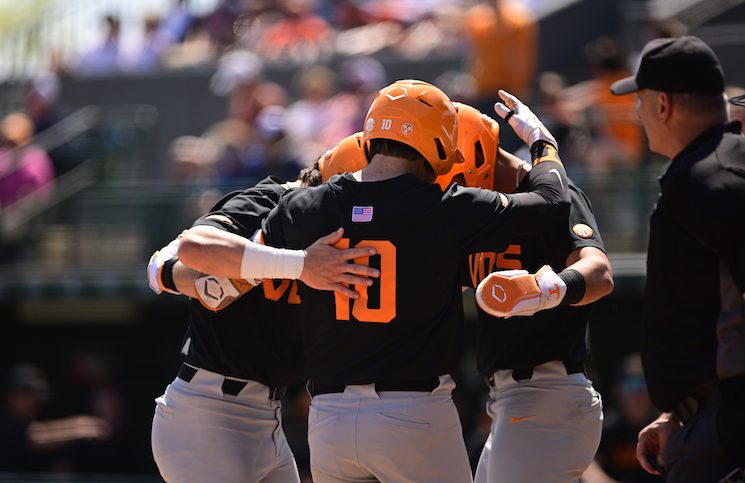In the world of college baseball, few rivalries have matched the intensity and drama of the Tennessee Volunteers and the Vanderbilt Commodores. Their encounters have often been marked by high stakes, passionate play, and, at times, heated exchanges. One such incident occurred during a recent game, where a post-game altercation between Vanderbilt head coach Tim Corbin and Tennessee’s Tony Vitello brought the fierce competition between the two programs into the spotlight.
The game in question was a pivotal matchup in the Southeastern Conference (SEC) tournament, where both teams were vying for supremacy. As the final out was recorded, emotions ran high, and tensions that had been building throughout the game came to a head. The confrontation between Corbin and Vitello was not just a reflection of the immediate events but also a culmination of the longstanding rivalry between the two programs.
Corbin, known for his composed demeanor, was visibly agitated following the game. In a candid post-game interview, he expressed his frustration with the way the game had unfolded. “I talked to Tony throughout the series,” Corbin remarked, acknowledging the ongoing nature of their interactions. “But tonight, things got out of hand.”
The altercation itself was brief but intense. Witnesses described a heated exchange between the two coaches near the dugouts, with both parties exchanging words before being separated by officials and security personnel. The incident was captured by several cameras, and the footage quickly circulated on social media, sparking widespread discussion among fans and analysts alike.
Vitello, who has built a reputation for his fiery passion and competitive spirit, responded to the incident with characteristic candor. In his post-game remarks, he downplayed the significance of the confrontation, suggesting that it was a natural byproduct of the high-pressure environment of SEC baseball. “It’s just part of the game,” Vitello stated. “Tempers flare, but at the end of the day, it’s about the players and the game itself.”
Despite Vitello’s attempt to downplay the incident, the altercation had significant implications. Both coaches were summoned by SEC officials for a review of the events, and the league announced that both would be fined for their roles in the confrontation. The fines, while not substantial in monetary terms, served as a stern reminder of the league’s commitment to maintaining decorum and sportsmanship.
The fallout from the incident extended beyond the fines. Both Vanderbilt and Tennessee faced increased scrutiny from the media and fans. Analysts dissected every aspect of the altercation, from the body language of the coaches to the timing of the confrontation. Some commentators criticized the coaches for allowing their emotions to overshadow the game, while others defended them, arguing that the intensity of the rivalry justified the heated exchange.
In the weeks following the incident, both programs took steps to address the situation. Vanderbilt issued a statement reaffirming its commitment to sportsmanship and announcing that Corbin would undergo additional training on conflict resolution. Tennessee, in turn, emphasized the importance of maintaining composure under pressure and announced that Vitello would participate in a series of workshops aimed at enhancing leadership skills.
The incident also prompted a broader conversation about the nature of rivalries in college sports. While rivalries are often celebrated for adding excitement and drama to the games, they can also lead to situations where emotions override reason. Experts in sports psychology weighed in, suggesting that while passion is essential, it must be channeled constructively to prevent negative outcomes.
For the players, the altercation served as a stark reminder of the pressures and challenges that come with playing at the highest levels of college sports. Many expressed their desire to focus on the game itself rather than the off-field drama. “We just want to play baseball,” one player remarked. “All the extra stuff doesn’t help us win games.”
Looking ahead, both Vanderbilt and Tennessee are expected to continue their rivalry, with future matchups likely to draw significant attention. The incident, while unfortunate, has added another layer to the storied history between the two programs. It remains to be seen how this altercation will influence future encounters and whether it will serve as a catalyst for positive change or further fuel the competitive fire that defines their rivalry.
In the end, the post-game confrontation between Tim Corbin and Tony Vitello highlighted the fine line between passion and professionalism in college athletics. It underscored the challenges coaches face in managing their emotions and maintaining the integrity of the game. As both programs move forward, the hope is that the lessons learned from this incident will lead to a deeper understanding of the responsibilities that come with being leaders in the world of college sports.



